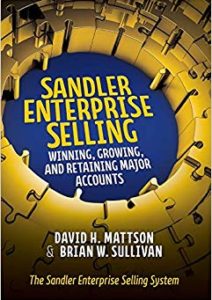With the exciting Women’s World Cup just concluded, fans had a terrific opportunity to enjoy the outstanding competition and some very competitive games. And with all the media coverage, we received detailed insights into team strategies and even how specific plays were executed. One of the Fox Sports broadcast crews which consisted of ex-players dissected a pivotal corner kick from the standpoint of the playbooks of both the offense and the defense.
Since we’re all not aficionados of the sport, let’s first consider the value of a corner kick. In a sport with few settled situations, corner kicks present unique opportunities for controlled strategies. Even so, consider that The Washington Post reported that, in the English Premier League, only 17% of corner kicks result in shots on goal with only 2% resulting in goals scored. So, what do the teams’ playbooks cover to help maximize the likelihood for each side of achieving successful outcomes?
The offensive playbook sets the strategy for the kick, in-swing or out-swing, often indicated by the striker via arm signals. The offensive players’ positioning in terms of receivers, covers, and decoys are also outlined and formations, markings and rushes from the top of the box are also strategized.
From the defensive standpoint, marking and zonal formations are detailed in the playbook as is the guarding of the front and back posts. Marking the penalty area, goalie sightlines and clearances are planned as is the defender alignment across the goal face and space creating strategies.
And there’s much more. All to increase the chances of success with something that results in a score, on average, just 2% of the time!
What about sales? How valuable is the time spent on a sales playbook? I’m reminded of the iconic quote on wall posters and emblazoned on our monthly planners in my early selling days at Xerox. “Plan your work – work your plan” We all know it, right? But how can it be more than just a tag line? How can we make it really work? Sales playbooks are a great place to start. Why? Because, successfully structured and utilized, they dramatically increase your chances of success. Consider what Aberdeen Research has to say about sales organizations that implement playbooks versus those that don’t:
- Sales cycles are 10% shorter
- 12% more sales reps hit quota
- Revenue growth is 7% higher
Right. Wouldn’t it be nice to get those lifts in your numbers? Let’s dive into sales playbooks and see how they help. First, for some context, consider the six categories of sales playbooks:
- Reference – Everything a sales rep needs to know to get their job done
- Messaging – How to effectively prepare for and conduct sales conversations
- Coaching – How sales managers execute critical processes to motivate high performance
- Campaign – Everything inside sales teams need to know to execute prospecting campaigns
- Sales Process – How reps and managers apply process best practices to drive success
- Specialty – Customized versions of the other types by role, segment, product/service, etc.
For this article, we’re focusing only on sales process playbooks because effectively crafted and executed, they really are the only type you need. Not to diminish the value of the others or to expose too much of my “carrying a bag” bias but the achievement of excellence in sales process execution truly encompasses everything.
Now, you might say, “We have a documented sales process already”. Of course, most organizations do. Or at least they say they do. And whether or not they’re actually followed, most “documented” sales processes consist simply of exit checklists or qualification guidelines. While these are helpful, they fall far short of comprehensive sales processes.
So, what’s required? A real sales process and a real playbook – succinctly defined here by Dan Zamudio, CEO of Playboox and a global sales playbook thought leader. “A sales process playbook captures and codifies what your top performers say, ask, do and use at each stage of the sales process to guide all salespeople on how to most effectively initiate, assess, advance, close and grow sales opportunities and enable sales managers to systematically coach their reps to do the same”.
Closing and growing – made much more probable through the power of sales playbooks. I’ve worked closely with Dan Zamudio, truth be told, as he developed Sandler Playmaker, which drives consistent execution of our sales process and organization-wide leveraging of best practices. And it also drives closing and growing. I can attest to that!
So, consider bringing your process to life with a sales playbook – a process not for process sake but a process for people’s sake. I can assure you you’ll close and grow more and your probability of a corner kick goal will go way up from 2%!












Comments (11)
Very interesting
Insightful. Planning is key.
Without adequate planning, we can’t move sales
Saved this in my Pocket app. Thanks for giving this insight!
It should also be way of life,reduce chaos and promote order ,management and success. I like it.
Superb, insightful and interestingly educating. It’s simple and easier but the best….
Very insightful and educative.
interesting comparison. a good read
every salesperson needs these articles. it’s intuitive.
Totally aligned with the advice of monitoring ads’performance,understood striving to do it the best way possible. By the way,article well documented and really informative.Thanks.
This is cool and informative.